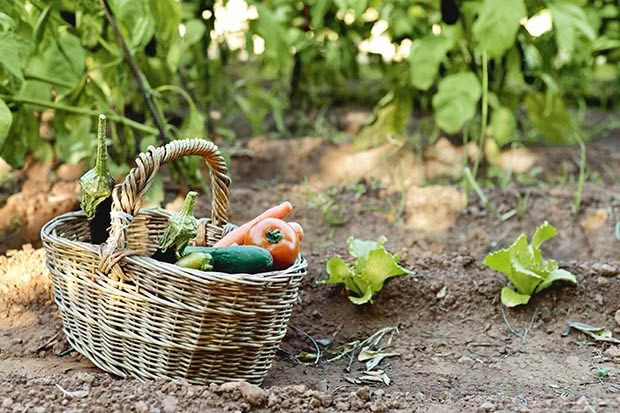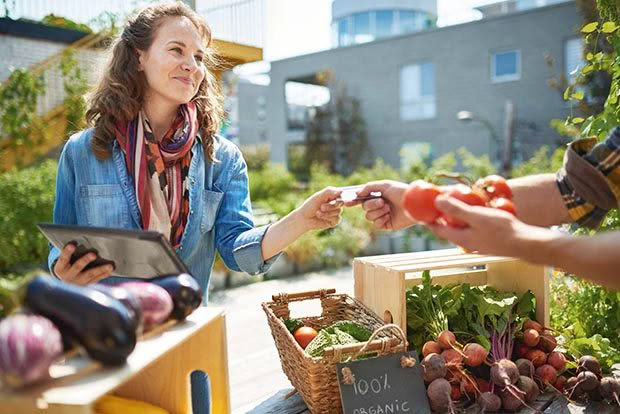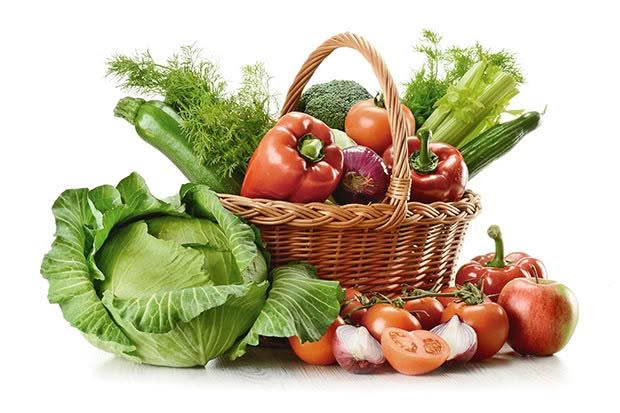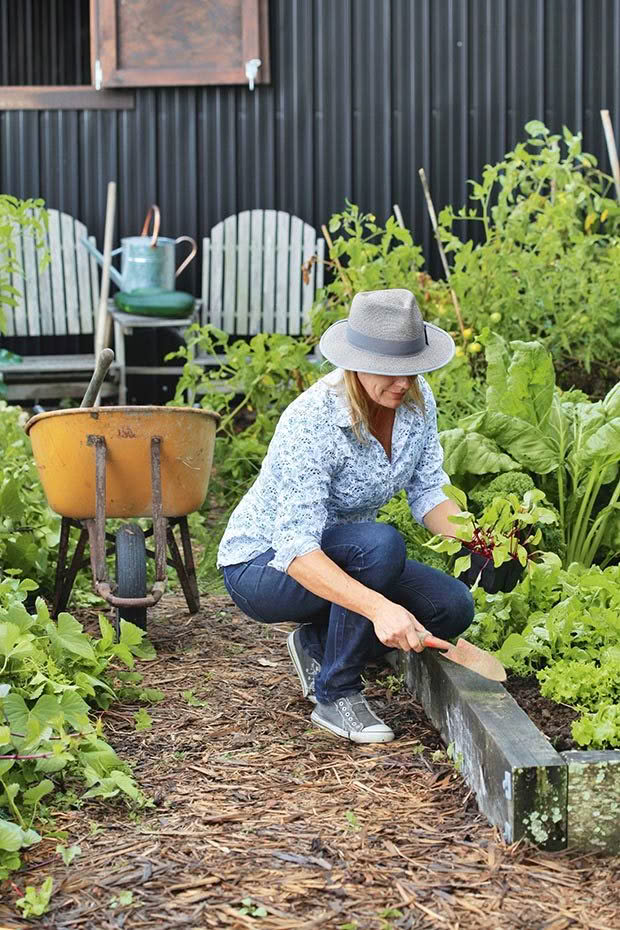Does eating organic make a difference? Dr Libby weighs in

The more we demand organic foods and reject pesticides, the more available organics will become.
Dr Libby
What are the benefits of going organic? And if going completely organic isn’t possible budget-wise, are there any particular foods or products I should focus on first? Any tips or advice would be appreciated.
The use of synthetic pesticides is relatively new when you consider that humans have been on the planet for about 150,000 years. Pesticides have to be tested before they can be used for consumption, but they are often trailed for such a relatively brief time. I don’t believe we can compare tests done over, say, a six-month period, with being exposed to these substances across an entire lifetime.
We also can’t measure what takes place when all of the chemicals are mixed and then combined inside our bodies every day, the way they are when we eat conventionally grown produce day after day, year after year. My view is that we are guinea pigs when it comes to the long-term consumption of pesticides.

Today, food grown without pesticides is referred to as “organic”; 70-odd years ago it was simply called “food”. Fruit and veggies can only be called certified organic if they have been packaged, harvested, raised or grown without the use of synthetic chemicals including antibiotics, pesticides, fertilizers, insecticides or growth hormones. Certified organic also means the produce has not been genetically modified.
In organic farming, soil is the foundation of the food chain, and it is tended as such. Often, with conventional farming, the only three nutrients that are added back to soils are nitrogen, potassium and phosphorus, yet there are 52 others. If a nutrient isn’t in the soil, it can’t be in the food and our body relies on daily doses of nutrients to sustain life. For this reason alone, it is so important to support organic, biodynamic and sustainable agriculture sooner rather than later for the health of people and the planet.

When a plant is left to grow of its own accord without pesticides, the plant creates substances within itself to help ward off pests. These substances not only protect the plant, they also often behave as antioxidants when consumed by humans. If the plants are sprayed with pesticides or herbicides, they no longer have to (and don’t) produce these substances that enhance health and help slow down ageing and degeneration. So eating organic food is not just about what you miss out on — pesticides — but also what you get — more antioxidants.
Pesticides, being fat-soluble, typically have to be detoxified by the liver before they can be excreted. Detoxification processes have to be prioritized, so if your liver is overloaded, pesticides have the potential to be stored in the fatty tissue of your body instead of being eliminated. When the liver can’t keep up with the load going in, it can also have a tremendous impact on your energy, as well how you look and feel.
Please do not be discouraged from eating conventionally farmed produce. I simply urge you to choose organic whenever you can. I know I’m on my soapbox, and I do want to remain real and practical with my advice, so here are some tips to get you started.
GROW YOUR OWN
Even if you don’t have a lot of time or space, it is still possible to grow your own herbs or vegetables. I’ve seen some amazing organic herb gardens on balconies, and smaller vegetables such as cherry tomatoes can be grown in pots.
Buying seasonal spray-free produce at your local farmers’ markets can be more cost-effective, not to mention tastier and more nutritious.

RE-EVALUATE SPENDING
I understand that financial constraints can be a real barrier to buying organic, yet I encourage you to consider if there are funds you could reallocate. For example, I didn’t buy new clothes or shoes for more than four years when funds were tight unless they cost less than $5 (at the op-shop), so that I had money to buy organic food. That’s how much eating organic meant to me. What regular purchases could you go without so you have more to spend on fresh produce?
Making your own skin-care products can be another way to save. Beautiful DIY face masks can be made from whole foods. Coconut oil can be used as a body moisturizer, and a blend of oils, such as avocado, almond and/or jojoba makes a lovely cleanser for the face. Not only is this nourishing for your skin, but it also reduces your exposure to synthetic substances and can be cost-effective. Remember, small changes can add up, so do what is practical for you. And then stretch a little further.
ORGANIC SENSE
On a budget? It can help to prioritize the organic fruits and vegetables you buy. Think about the way you eat the food. We peel a banana. It may have been sprayed, but how much gets through the skin? We actually don’t know. But surely there would be less chemical residue in the flesh of a banana than on the skin? So perhaps choosing a conventionally grown banana is not too bad? When it comes to an apple, we usually eat the whole fruit. So you would be better to choose an organic (or biodynamically grown) apple wherever possible.
There’s also a “dirty dozen” list published each year by the American Environmental Working Group, which lists the dozen fruits and vegetables with the highest pesticide residues after preparation. This can be useful for prioritizing which organic foods you buy.
If it’s not possible for you to buy organic, try this solution to help remove pesticides. To clean food of both dirt and pesticides at the same time, fill your sink with three parts water to one part vinegar, wash your fruits and vegetables, then rinse them in fresh water, pat them dry and store them for use. Pesticides tend to be fat-soluble, and so general washing to get rid of dirt and germs does not remove them.
Love this story? Subscribe now!
 This article first appeared in NZ Life & Leisure Magazine.
This article first appeared in NZ Life & Leisure Magazine.
